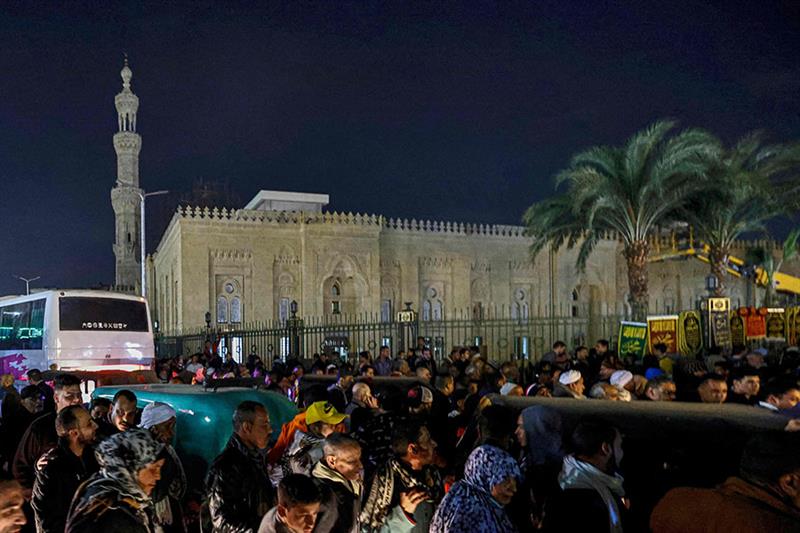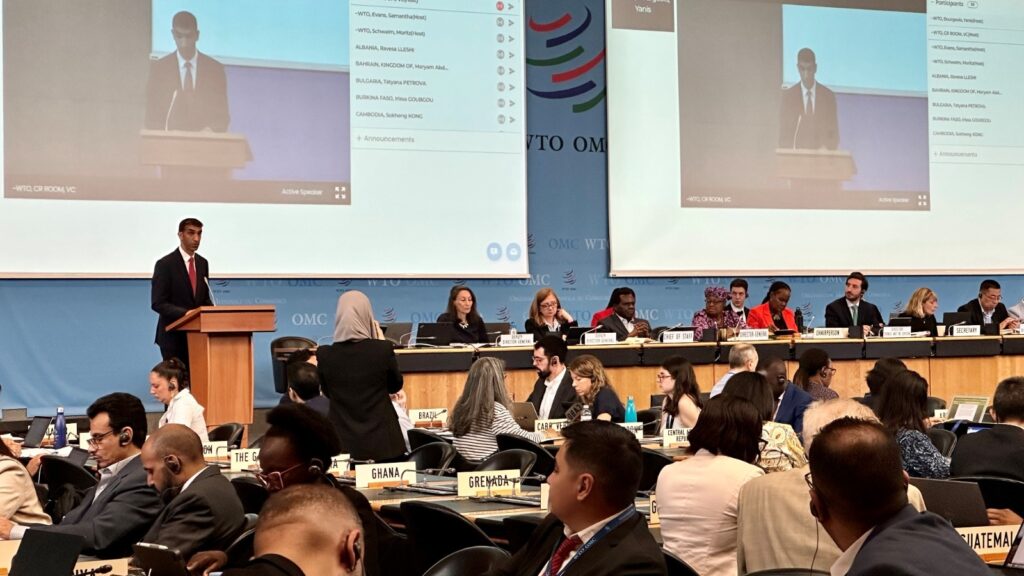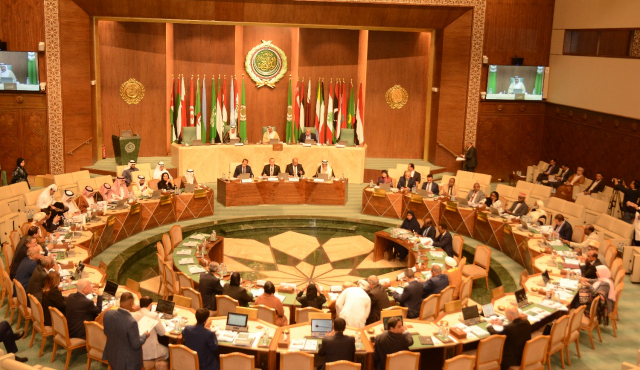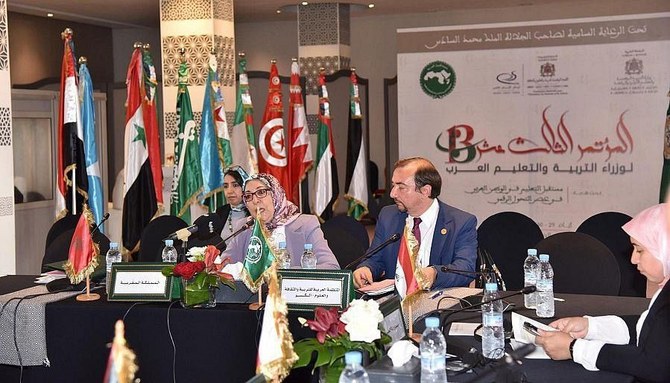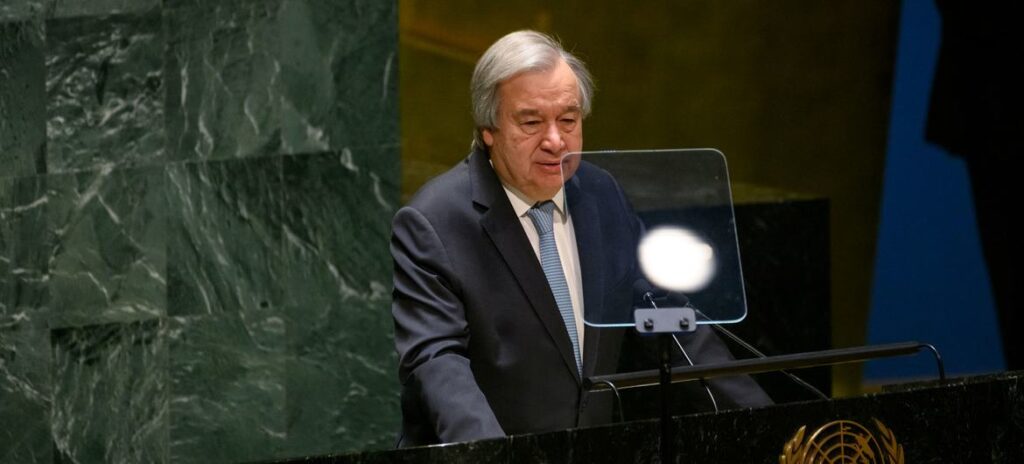Amid the chaos of the First World War, a new pan-Arab empire was proclaimed. It faltered, but its historical lessons remain.
In December 2022, Abdullah II, the king of Jordan, gave an interview to the CNN anchor Becky Anderson. Sitting close to the Jordan River, not far from where Jesus is believed to have been baptised, this Muslim ruler expressed his concerns about the status of Jerusalem and the Christians under pressure from the new, extremist Israeli government. He emphasised that the ‘Hashemites’, his family, are the custodians of both Christian and Muslim sites in the holy city. Abdullah II cited his great-great-grandfather Sharif Hussein. It was from Hussein’s time, sometime at the end of the First World War, according to Abdullah II, that the Hashemite custodianship of Jerusalem’s holy sites originates. His ancestor even gave sanctuary to Christian Armenian refugees in Jordan, said the king proudly on CNN.
Abdullah II’s remarks presented him as a confident and reassuring monarch but they also refer to a history of modern Arab kingship and the modern Middle East that has mostly been forgotten. Wikipedia in English, for instance, tells us that the custodianship of the Muslim sites in Jerusalem by the Hashemites follows from a ‘verbal agreement’ of Hussein with the Supreme Muslim Council of Palestine in 1924. The Indonesian version of Wikipedia repeats the claims of the English article. The Arabic version, however, tells us about the financial help Hussein gave for restoring the holy sites of Jerusalem and subsequent donations by the Hashemite dynasty for further improvements to the holy city. So, who was Hussein and what’s his relevance today?
Sharif Hussein is a legendary figure of the 1910s and ’20s. For some – certainly for Abdullah II – Hussein was the nationalist leader of the ‘Arab revolt’ during the First World War who won the war for the Arabs. In an alliance with Britain, he revolted against the Ottoman Empire in 1916 in order to establish a giant independent state that he called the ‘Arab Kingdom’. Others see him in less heroic terms. They blame him for ‘stabbing the Ottomans in the back’, the inability to stop the partitions decided by Europeans, and the Zionist settlement of Palestine – so, in a way, for losing the war.
The importance of Hussein and his Arab Kingdom for today is a forgotten experiment with state-formation exactly 100 years ago. Modern states do not originate only from nationalism. Abdullah II’s remarks at the Jordan River evoke Islam as a principle of government and Muslim rulers as protectors of Christians. This use of Islam is very different from what we usually hear about religion in the Middle East – for instance, ‘sectarianism’ (religion-based claims to institutionalised representation within nation states, often erupting in violence) or the fascist brutality of ISIS. But neither should we follow the king of Jordan into a monarchist-nationalist nostalgia. His great-great-grandfather Hussein was not born a nationalist. Here, I tell Hussein’s story as an exercise in unearthing ideas about Muslim government that we can call ‘imperial’. This is important because the imperial techniques of state-making defined the early 20th century in many regions of the world, and not nationalist or egalitarian revolutions.
Sharif Hussein bin ‘Ali was the scion of an important family from the sacred city of Mecca. Sharif means ‘nobleman’. Individuals who claim that they are descendants of the Prophet Muhammad use the Arabic honorific terms sharif (plural ashraf) and sayyid (meaning ‘master’, plural sada). Tens of millions of Muslims today claim this heritage. Saddam Hussein, the Iraqi dictator until 2003, was one of them, for example. The rulers of Morocco, too, are ashraf. (The Saudi kings are emphatically not.) Furthermore, among all ashraf and sada, only the Jordanian ruling family and their relatives are called ‘Hashemites’ publicly, after Hashim, a legendary ancestor of the Prophet Muhammad. So, yes, both Hussein and his great-great-grandson King Abdullah II, sitting next to the Jordan River talking to CNN, are also ashraf, descendants of the Prophet.

Panoramic view of Mecca, c1845. Courtesy the Khalili Collections
Yet Hussein was born not in Mecca, but in Istanbul, at the metropolitan centre of the Ottoman Empire, sometime in the 1850s. The Ottoman Empire, a vast, three-continental administration in Europe, Asia and Africa, existed roughly between the 14th century and 1922. This empire was the Mediterranean Muslim superpower. The Ottoman emperor – sultan – assumed the title of the caliph of (Sunni) Islam, too. Today, in its final former territory across Europe and Asia, we find the states of Turkey, Albania, Bulgaria, Syria, Lebanon, Iraq, Jordan, Israel, the Palestinian Territories and Saudi Arabia, as well as Egypt, Libya and Tunis in North Africa. In 1914, at the threshold of the First World War, its directly ruled population was estimated at around 25 million (at that time, the US population was about 100 million; Austria-Hungary was about 50 million).
For the Ottomans (a non-Arab, Turkic Muslim imperial dynasty), the most important ashraf were those in Mecca and Medina, the sacred cities in the Hijaz region of Arabia. Hence the value of Sharif Hussein bin ‘Ali for this Muslim empire. The loyalty of the Meccan descendants of the Prophet meant the symbolic recognition of the Ottoman caliphate. Since their conquest in the early 16th century, the Ottoman sultans usually appointed a sharif to serve as the emir of Mecca, its local ruler. From the mid-19th century, the descendants of the Prophet became closer and closer to Istanbul, literally. Hussein was born in Istanbul because his family branch in exile competed for the emirate of the holy city. He knew Turkish, his wife was Turkish-speaking, and his sons received Ottoman education. Hussein, known in the Ottoman administration as Şerif Ali Paşazade Hüseyin Bey (in Turkish transliteration), became quite an Ottomanised descendant of the Prophet.
The logic of the time was not to create nation-states but to transform empires into looser organisations
From the 1870s, the descendants of the Prophet received political roles in the Ottoman imperial capital. Many other more ordinary Arabs from the provinces also became part of the modernising imperial bureaucracy. Hussein and his sons (and the rival sharifian Meccan family members), circulating between Mecca and Istanbul, benefitted from this modern experiment fusing Islam with imperial patriotism. It’s helpful to think of this as an ‘unelected system of representation’, for the sultan suspended the imperial constitution in 1878 and substituted the parliament with these new practices. The ashraf ‘represented’ their regions (in a way, Hussein’s family stood for Mecca and the Hijaz region) but also in general the Muslim community. Many ashraf sat on imperial councils, travelled on steamships and the new railway lines, and so provided a symbolic cover for the empire. After the coup d’état usually known as the Young Turk Revolution to restore the constitution in 1908, Hussein’s sons became elected members of the new imperial assembly. And from 1908, Hussein held the imperial office of the emir of Mecca.
Being a descendant of the Prophet and an Ottoman imperial notable was a uniquely powerful combination in a city where a growing number of Muslims from all over the world came to perform pilgrimage in the age of steam. No wonder that the European empires (with large Muslim colonies and domains) were keen on gaining Hussein’s attention, and Hussein was also keen to gain their attention, especially the British. Hussein had been loyal to the Ottoman Empire before 1908 but hated the Young Turks and the restored Ottoman constitution. He thought that the Quran should be the only constitution in the empire; and he also feared losing his position as emir of the holy city. In the 1910s, Hussein and his sons made cautious contact with the British consul in Cairo. Intriguing, in early 1914 Hussein’s son Abdullah asked the British consul to consider a British protectorate over the emirate of Mecca like the British did with the subdued Afghan emir.
This 1914 intrigue of the Ottoman ashraf of Mecca in order to switch empires was part of a much more complex momentum of imperial transformation in the Eastern Mediterranean and the Red Sea. We must understand that the logic of the time, despite the popularity of ethnicity- and language-based patriotic ideas, was not to create sovereign nation-states but to transform empires somehow into looser organisations.
By the 1910s, many faith- and ethnicity-based groups in the Ottoman Empire demanded reforms to transform the empire into a federation. Bourgeois Arabs were no exception as some Syrians started to imagine a decentralised Ottoman Empire with Arab autonomy. Other Arab groups – for instance, the religious entrepreneur-journalist Sheikh Rashid Rida and his activists, with some European encouragement – imagined a new empire as a Muslim association of emirs, and some other sheikhs even advocated for an Arab caliph instead of an Ottoman one. In many of these 1910s plans, the ashraf had a role and Hussein, as the ruler of Mecca, personally could expect a potential caliphate. European commentators imagined this would-be Arab caliphate as a type of papacy, restricted to the holy cities in the Hijaz. This would have ended the age-old Ottoman system of combining the emperor and caliph titles. In short, the spirit of the time was to create autonomous polities in some sort of federation as a better way to accommodate economic and political demands of ethnic groups, and to challenge the Ottoman leadership of Sunni Islam.

A flag of Hijaz, also known as the flag of the Arab revolt, presented by Sharif Hussein, King of Hijaz, to King George V of the United Kingdom in 1918. Courtesy the Royal Collection, London
And in October 1914, the Ottoman Empire joined the Great War as a member of the Central Powers. Germany, Austria-Hungary and the Ottomans fought together against the Allied Powers, the British-French-Russian alliance. The Ottoman caliph declared jihad on the Allied Powers (not, to be noted, on his own Central Power allies, the Germans and Austro-Hungarians). For the Allied Powers, Hussein, the emir of Mecca, was the most useful symbol against the Ottoman caliph. As a descendant of the Prophet, as an Arab, he was a potential challenger of the Ottoman claim to the caliphate (and, for the better, this emir of Mecca had already requested British protection). After an exchange of letters with the British High Commissioner in Cairo (this correspondence came to be known as the Hussein-McMahon correspondence), Hussein declared his revolt – the ‘Arab revolt’ – against the Ottoman government in June 1916. Ever since, there has been a debate over what the British promised exactly, what a promise means in informal diplomacy, and whether the British betrayed their promises later.

Bedouin Arabs with the flag of Hijaz during the Arab Revolt in 1917. Courtesy the Library of Congress
Despite the assurances about a large Arab polity in the correspondence with McMahon, no Allied planners really expected that the emir of Mecca would want something more than a small emirate with the holy cities in the Hijaz. When, in October 1916, Hussein and his sons announced their claim to a giant polity, with Hussein as ‘King of the Arabs’, it took the Allied Powers by surprise. The ‘Arab Kingdom’ was an idea about a new empire stretching from the Levant (what is today Palestine, Israel, Jordan, Lebanon) to the Iraqi regions, even Arabia, thus including most of the Arabic-speaking Asian Ottoman provinces (but not the North African ones). Overcoming their surprise, in January 1917 and later repeatedly, the Allied Powers recognised Hussein as king only over the Hijaz, a small portion of Arabia. But this new ruler and his sons were not satisfied with a kingdom of the Hijaz. They maintained their claims to a much larger state, a new Muslim-Arab empire. This is why, when the sharifian troops entered Ottoman Damascus in October 1918 under the orders of his second son Faisal, many Damascenes understood that they are now in the ‘Arab Kingdom’, being the subjects of Hussein, a new Muslim sultan.
Empire is often a rhetorical term to mean something evil. Think about the empire in Star Wars. But we historians use ‘empire’ as an historical-analytical category of government, whose organising logic differs from the ideal of the nation-state. Empire is a large organisation that uses all available means (violence, dynastic marriage, religion and ethnicity) to establish political and economic claims on diverse regions with diverse peoples. As Jane Burbank and Frederick Cooper call to our attention, empires welcome and embrace ‘diversity’; it is nation-states that require a homogeneous population. Historical empires subjugated and colonised peoples, but the important issue for our purposes is that empire is a different way of subjugating and organising peoples from that of the nation-state.
At the end of the Great War, the political visions about the future of what became the Middle East – the Allied agreements about partition, the well-known 1917 British promise of Palestine to Zionists as ‘the establishment in Palestine of a national home for the Jewish people’, Hussein’s Arab Kingdom, some bourgeois Syrian federative visions, and the very much existing Ottoman loyalists – were not about sovereign nation-states. These plans and visions all implied some type of empire. Perhaps, the most fitting for post-Ottoman Arabs was a federative polity, with or without a dynasty. The imperial logic of organising peoples and territories dictated the political imaginations up to about 1922.
During 1918 and 1919, the sharifian advocates of the Arab Kingdom projected Islam and Arab ethnicity as the founding norms of a new political order. From early 1918, the official journal in Mecca and his sons called Hussein ‘the Commander of the Faithful’ in Arabic (amir al-mu’minin) while the new king craved for the title of caliph. Both the sharifian and British propaganda started to advertise Prophetic descent as an important quality for Muslim rulership. The Arab Kingdom was to be ruled by Hussein and his sons, the descendants of the Prophet Muhammad. Islam, Prophetic genealogy and ethnicity were to serve as the constitutional foundations of Hussein’s Arab Kingdom. We can call this idea of a state a ‘genealogical empire’.
Using religion in state-formation is considered today outside of international norms
Hussein’s genealogical empire was the first of many post-Ottoman Muslim imperial projects in the 20th century. Like the case with Christian, Hebrew and Buddhist imperialisms, there had been various kinds of Muslim empires in history, from the late-antique Muslim-Byzantian caliphates to the last great empires of the Mughals in India, the Qajars in Iran, and the Ottomans in the eastern Mediterranean. In a way, the Arab Kingdom was to contain recycled Ottoman institutions: the caliphate, a monarchy, Islam, the ashraf, and of course the ex-Ottoman peoples, such as Arabs, Turks, Armenians, Jews and Kurds, some of whom were Christians and even Shi‘i Muslims. The Ottoman politics of diversity had to be transformed into a new Muslim framework.
Using religion in state-formation is considered today outside of international norms. In 1919, the sharifian makers of the Arab Kingdom had to face the Ottoman Arab urban bourgeoisie who were rather advocating some type of federation, perhaps preserving an association even with Istanbul. For instance, in Ottoman Damascus, the sharifian occupiers had to compromise for a constitutional, federative ‘United States of Syria’, in which Faisal, the son of Hussein, was declared king in March 1920. But Sharif Hussein was not a federalist. In his imagination, this unrecognised Syrian princely polity was still part of his larger Arab Kingdom.
Next to the Arab federalists and the still-strong Ottoman loyalists, the sharifian imperial project also bumped into the intentions of the Allied Powers. This is the more familiar story about the modern Middle East. The French and British (and Russian and Italian) governments aimed at partitioning the Ottoman provinces. Just think about the Balfour Declaration in 1917, given by Britain’s foreign minister Lord Balfour to the Zionists to establish a ‘national home for the Jewish people’ in Ottoman Palestine, practically a promise for settler colonisation, a typical imperial gesture. The Covenant of the League of Nations in 1919 codified these agreements in the new international system. Hussein remained to be recognised only as the king of the Hijaz. There thus existed in 1919 a split situation – while the ‘Kingdom of the Hijaz’ was a minor Allied Power and as such participated in the Paris Peace Conference, the Hijazi (sharifian) representatives and administrators in the occupied regions projected the idea of the ‘Arab Kingdom’ with full force.
And even more complicated was the fact that Hussein’s polity was to be a subordinate to the British Empire. For instance, Hussein had no problem with a British appointment of his minister of war and often repeated that the British gave him power over lesser rulers in Arabia. Even more importantly, the British treasury financed the Hijazi (the sharifian) army and their occupation administration in Damascus, and in December 1919 the British government gave over the financing of this occupation zone to the French treasury. The French army did not trust Faisal, a would-be sharifian monarch in Damascus, who was too closely tied with his father Sharif Hussein, a potential caliph in Mecca, and with British politics. Besides, the French colonial empire had their own sharifian monarch in Morocco. In July 1920, the French army invaded the internal lands of Syria, expulsing the Hijazi sharifian regime and Faisal, the new king of the United States of Syria, and killed the Ottoman Syrian general Yusuf al-Azma. Thus, accidentally, the French army also ended the hopes of the local Syrian Ottoman loyalists about returning to Istanbul’s umbrella.
The possibility of a large Arab kingdom was not yet crushed as sharifian troops still held the Ottoman Hijaz railway stations in Transjordan, the mountains above the river Jordan. This is where Hussein’s third son Abdullah arrived in November 1920 to represent his father and establish his own emirate within the sharifian empire. The British planners agreed to this arrangement in April 1921 and at the same time transferred the defeated Faisal to rule a new country, the Iraqi kingdom. Thus emerged a chain of sharifian monarchies (the Kingdom of the Hijaz, the Emirate of Transjordan, the Kingdom of Iraq) in a loose association, under British control. This modular association of three Muslim rulers was still an empire, with Mecca as its centre. In 1921, British officials were astounded when Sharif Abdullah presented them with a constitutional draft of his new emirate that derived his authority over Amman from his father, Sharif Hussein, in Mecca. The operation of recycling the Ottoman Empire into a series of emirates held together by Prophetic genealogy, Islam, ethnicity, a railway, and dynastic claims was the defining project of the Middle East until 1924.
Abdullah II’s remarks today about the Hashemite protection of Christians and Jerusalem’s holy places originate in this moment and in this project. Muslim emperors had offered protection to persecuted communities in the past, and possibly Sharif Hussein was also glad to exercise this imperial gesture when his troops found Christian Armenian refugees in the occupied Syrian provinces. Furthermore, as a potential ruler of Jerusalem and a caliph – in fact, in March 1924 he did assume the caliphate in public – Hussein and his sons got in touch with the Jerusalem Muslim, Christian and Jewish communities. A Jerusalem delegation arrived in Amman in March 1924 to acknowledge Sharif Hussein as caliph (and another Jerusalem group to anxiously express their doubts). About this time, the Hashemites started to act as protectors of the holy sites in a symbolic competition (but also cooperation) with interwar Zionists.
But the core of the imagined Arab Kingdom – Mecca and the Hijaz – was gone by the end of 1925. Capitalising on the general dissatisfaction with King Hussein’s politics, a new conqueror, Sultan Abdulaziz of Najd in Central Arabia (‘Ibn Saud’) conquered the holy cities and expulsed the sharifian family. A new, this time Saudi, kingdom started in the Hijaz. King Hussein lived in exile – he was pointedly buried in Jerusalem near the Al-Aqsa mosque in 1931. So, when today Abdullah II claims protection over the holy sites, in fact he also claims his own ancestor’s grave.
In this story about the rise and fall of the sharifian Arab Kingdom – although never entirely gone, as Jordan is still with us – we have observed that religion, genealogy, federative ideas, ethnicity and monarchy were fundamental in the local making of modern Arab polities. While the Allied Powers partitioned peoples and regions, there was significant local involvement in the political furnishing of new states. The mixture of constituent fictions was not created by the Allied occupiers; instead, it emerged from how societies that succeeded the old Ottoman order continued to carry out imperial programmes in lieu of radical revolutions. At the same time, these successor societies were to be integrated into new European imperial orders, Greater France and Greater Britain, respectively. Western and Arab politicians, Orientalists, artists and the press further entrenched the essentialisation, racialisation and feudalisation of post-Ottoman Arabs in the 1920s and ’30s. The local and external logics of the imperial imaginary about Arab politics with its centrality on religion retained their force well into the second half of the 20th century, and, as we could observe in Abdullah II’s interview to CNN, even until today.
source/content: aeon.co / Adam Hestyan / edited Sam Haselby (headline edited)
____________
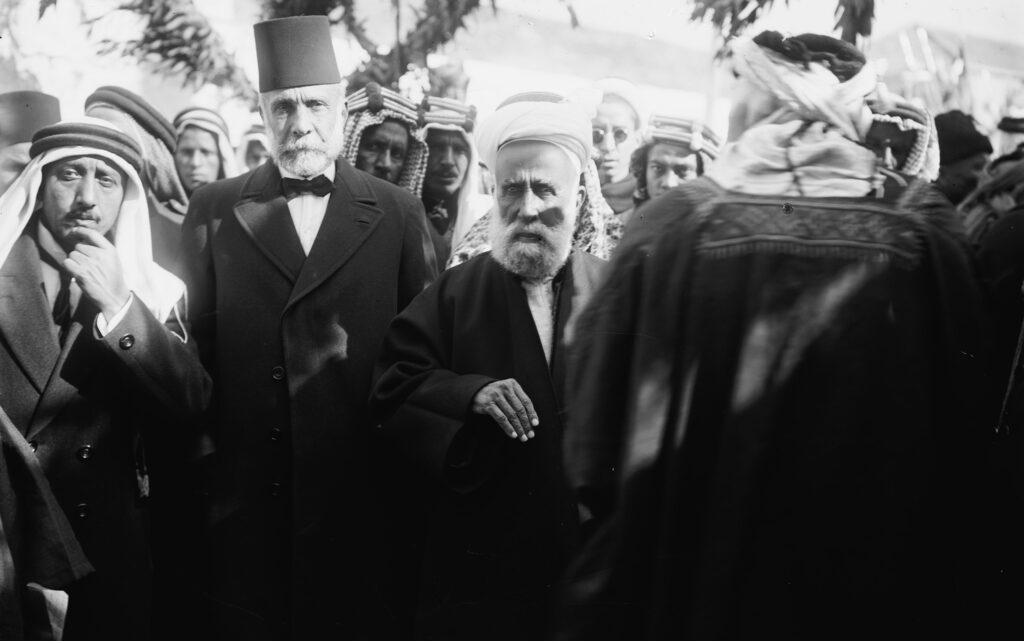
Sharif Husein and the campaign for a modern Arab empire
_________
ARAB
